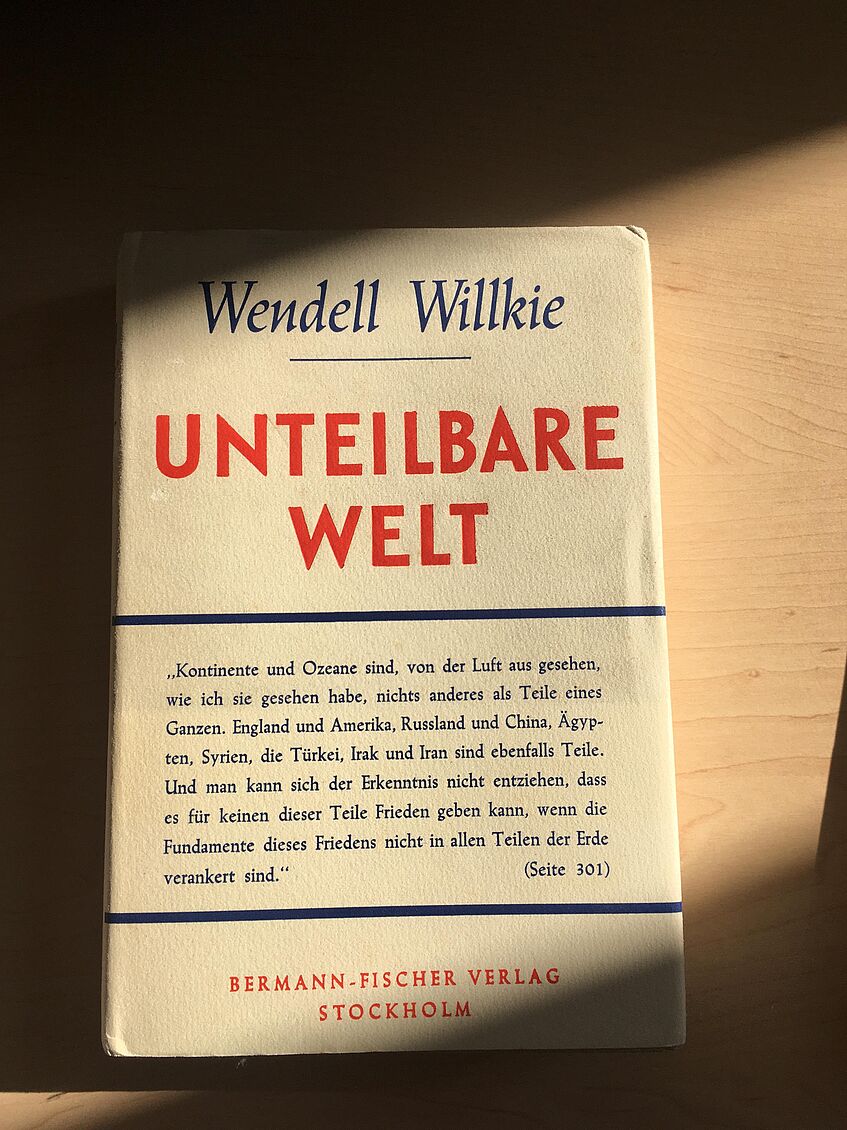What is Exil:Trans?

This translation was drafted by the translator and publishing house employee Justinian Frisch in 1943 in exile in Sweden.
Willkie, Wendell Lewis / Frisch, Justinian (1943): Unteilbare Welt. Stockholm: Bermann-Fischer. [One World (1943), New York: Simon & Schuster.
What is Exil:Trans?
Exile during the Nazi-regime has been a research object of various disciplines focusing on different groups of actors, among them culturally relevant figures such as writers and scientists. However, barely anything is known about translators in exile – and therefore about the agents responsible for the circulation of knowledge and ideas attributed to such figures. The project Exil:Trans aims at closing this gap by systematically researching translators who were forced into exile by the NS-regime. Its main objective consists in studying the impact exile had on these translators and their translation activities, thus contributing to the academic and public discourse about the cultural effects the Nazi tyranny had and still has. Exil:Trans not only takes into account the perspective of individual translators, but also the perspectives of the individual and collective agents, such as authors, publishers, and cultural institutions, involved in translation under the condition of exile. By analyzing the networks in which translators translated, a more comprehensive and detailed picture of their working and living conditions can be drawn.
Project partners:
- University of Vienna, Centre for Translation Studies (coordinating unit)
- Johannes Gutenberg University Mainz – Germersheim, Department Intercultural German Studies
- Université de Lausanne, Centre de traduction littéraire
Project duration:
- September 2019 – September 2022
Project funding:
- D-A-CH Joint project (FWF, DFG, SNF)
Project aims:
- creating a special database that provides basic biographical and bibliographical data, especially translators’ names, birth/death dates, translations, and exile paths;
- further in-depth investigations into translators’ lives with the help of this database, which will also be accessible to the general public. The aim of these investigations is to identify their networks and analyse the intersection of the various perspectives involved in the translation process.
- This will, extrapolate more general, transindividual patterns on basis of the established case studies, to identify regularities of translation in exile.
